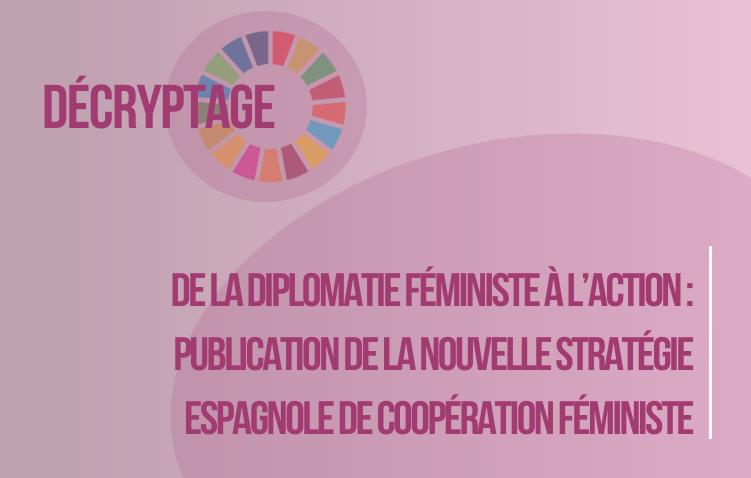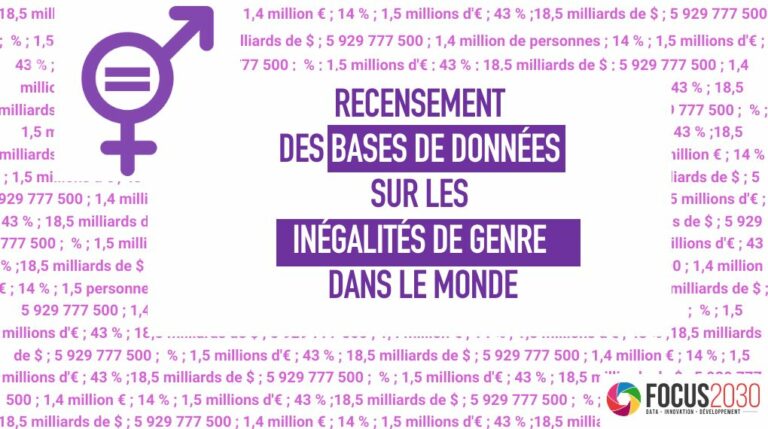3 questions to Miryam Djangala-Fall, General Coordinator of the Mouvement pour les survivantes de Centrafrique (MOSUCA) and Simone Veil Prize Laureate
Publié le 08/03/2024.
| In the run-up to March 8, International Women’s Day, and as part of its special edition on the state of inequality in the world in 2024, Focus 2030 wants to put forward the stakeholders who try to achieve gender equality on a daily basis. |
Mouvement pour les survivantes de Centrafrique (MOSUCA), is a platform of associations designed to include survivors from sexual violence in conflict prevention in the Central African Republic.
Interview with Miryam Djangala-Fall, Miryam Djangala-Fall, General Coordinator of the Mouvement pour les survivantes de Centrafrique (MOSUCA) and Simone Veil Prize Laureate
Focus 2030 : The Mouvement des Survivantes de Centrafrique (MOSUCA) works to support and defend the rights of women who survived conflicts in the Central African Republic. Can you give us an overview of the situation in the Central African Republic, and remind us to what extent women are particularly affected by the ongoing conflicts ?
Miryam Djangala-Fall : In the Central African Republic (CAR), over the past two decades, we have experienced two crises in 2002-2003 and in 2013-2014, during which serious human rights violations were committed throughout our territory.
We have seen our brothers, sisters, mothers and fathers murdered in front of our eyes, our sisters humiliated and forever broken because of rape. Rape was used against us as a weapon of war.
Since this “conflict period”, 2002-2003, then 2013-2014, the violence has never stopped. Rapes, collective rapes, forced marriages, forced prostitution of little girls and boys. Torture is a daily occurrence in this rich and beautiful country, not only in the provinces but also in Bangui, the capital. All parties present in the CAR have used sexual violence, directly targeting our brothers, sisters, mothers and fathers, directly to humiliate them, to destroy them psychologically and to destroy their relations with our neighbors, our community, our state.
The government is making efforts to stop the violence through a strategic committee to combat gender-based violence (GBV), of which I myself am a member, but there are huge needs in terms of finance and resources to carry out activities with survivors, to support them, help them break the silence and get fair justice and reparations.
Focus 2030 : How was MOSUCA created ? What are your current activities ? How do you try to prevent sexual violence and help survivors ?
Miryam Djangala-Fall : MOSUCA was created in 2018, following the last conflict in the CAR in 2013-2014. In the beginning we were 25 members to launch the network and today we have over 700 members in Bangui and across the rest of the country. Our coordinating committee is made up of 10 organizations of victims and survivors. Each member of the coordinating committee represents one of the associations.
We carry out advocacy activities with the Central African authorities and other actors and stakeholders for the involvement of survivors in decisions that affect or concern them. We also carry out community awareness-raising; identification of survivors and referral to holistic care; development of income-generating activities, support for survivor training; distribution of dignity and food kits.
MOSUCA also participates in exchanges of experience with other networks, such as the Mouvement des survivants.e.s de RDC (survivors’ movement of the Democratic Republic of the Congo), or via the global network SEMA – network of survivors and victims of sexual violence in times of conflict, with over 70 members from 26 countries.
Focus 2030 : Your movement has won the “Simone Veil Prize of the French Republic” 2024. This prize, established by the President of the French Republic, aims to reward personalities and organizations involved in the fight for women’s rights around the world. Since you won, your movement will receive a grant of 100,000 euros. What does this prize mean to you ? What projects do you plan to carry out thanks to this financial support ?
Miryam Djangala-Fall : This award testifies to the considerable and tireless work that MOSUCA members have carried out and continue to carry out in the field.
This award also reflects all the risks and stigmas that survivors face.
Everything that the survivors have experienced together, they have transformed into strength. MOSUCA members went from victim, to survivor, to activist.
The survivors’ testimonies and advocacy inspires other survivors to break their silence, to overcome what happened to them and their stories, and to become activists like the members of MOSUCA. Perhaps they will be the next winners of the Simone Veil Prize.
With the 100,000 euros from this prize, we would like to create :
- A local or center designed to receive survivors of sexual violence and their children born of rape in the Central African Republic.
- Collective memory activities as we have been able to carry out in the past such as theater, slam, dance, puppet workshops, etc.
- Publish a book about me, Miryam, survivor of sexual violence and general coordinator of MOSUCA.
NB : The opinions expressed in this interview do not necessarily reflect the ideas of Focus 2030.











